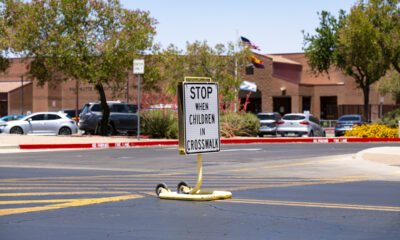Achieve60AZ
Boosting Commitment: A Serious Push Towards Achieving State Education Goals

In an effort to strengthen Arizona’s economic competitiveness, state leaders initiated a bipartisan goal for educational attainment in 2016. This initiative, dubbed Achieve60AZ, aims for 60% of adults aged 25 to 64 in Arizona to possess either a workforce certificate or an associate’s or bachelor’s degree by 2030.
Despite this ambitious target, progress has been sluggish. Over the past nine years, attainment rates have only risen 6%, reaching 48%. With about 4.3 million working adults in the target age bracket and only five years remaining, Arizona must produce an additional 500,000 degrees or certificates to meet its goal.
The responsibility for generating these degrees falls squarely on the shoulders of the state’s executive and legislative branches, alongside business leaders. The economic rationale for this endeavor is compelling; a recent analysis by Helios Education Foundation and Education Forward Arizona shows significant potential gains.
Increasing postsecondary enrollment by 20% could lead to economic benefits exceeding $5 billion annually for Arizona. Furthermore, ensuring underrepresented groups attain postsecondary qualifications at comparable rates to their peers could yield an additional $8.7 billion in economic gains. With higher educational attainment comes increased tax revenue and decreased public spending.
Beyond economics, higher education lifts individuals, leading to improved salaries and enhanced community contributions. Consequently, advancing degrees and certifications is crucial not just for education but also for the state’s overall quality of life.
A survey conducted by Education Forward Arizona found strong public support for educational expansion: 95% of voters advocate for increased career training programs, while 93% favor expanding advanced placement courses for high school students. Furthermore, 89% endorse additional online education programs for various demographics.
However, despite the clear demand and advantages of postsecondary education, state leaders have fallen short in their response to the Achieve60AZ goal. In her recent State of the State Address, Governor Katie Hobbs discussed achieving “Arizona’s Promise,” which entails providing opportunities for individuals to secure a bright future for their families.
Yet, the FY2026 Executive Budget proposal lacks the necessary ambition to foster the college degrees and certifications essential for achieving this promise. While restoring funding for essential programs is vital, current proposals do not sufficiently address the substantial investments required for dual enrollment and financial aid programs. To reach the Achieve60AZ goal by 2030, investments need to be prioritized now.
Currently, proposed funding for dual enrollment stands at a mere 30% of its level from two years ago, and only 20% of what education leaders requested. This program has proven effective, allowing high school students to gain college credit and reducing future college tuition costs. Yet, only 24.4% of Arizona high school graduates took at least one dual enrollment course in 2022, pointing to a clear need for expansion.
Arizona’s inaugural statewide financial aid program, aptly titled Arizona Promise, requests a total of $40 million in this year’s budget. However, to substantially improve access to higher education, the state must invest significantly more. Many states allocate hundreds of millions for financial aid, with the top five investing over one billion dollars each.
Inadequate funding and merely restoring past budgets fall short of what is necessary for significant progress. Arizona requires robust investments in education and training, complemented by innovative policies that target workforce needs and economic growth.
The challenge transcends merely counteracting previous budget cuts. Today, Arizona needs visionary leadership from both the public and private sectors, fostering high-performance educational systems and equitable access to quality education for all students. Accountability and a commitment to create pathways toward credentials that meet workforce demands are crucial for fulfilling Arizona’s economic potential.
Rich Nickel is the president and CEO of Education Forward Arizona, and John Fees is co-founder and CEO of NextGen Insurance Group and board chair of Education Forward Arizona.


















